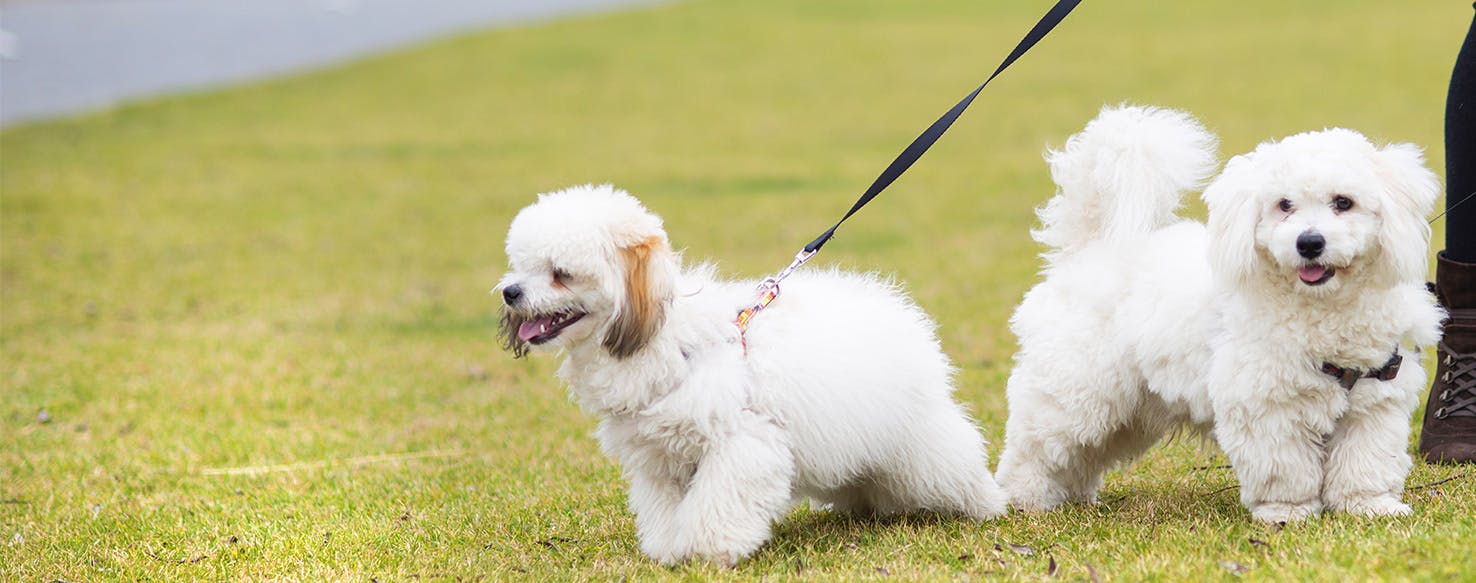- Home
- Dog Wellness
- Conditions Which Affect a Dog's Fertility
3 min read
Conditions Which Affect a Dog's Fertility

By Darlene Stott
Published: 09/13/2017, edited: 09/14/2021
Save on pet insurance for your pet
You don't have to choose between your pet and your wallet when it comes to expensive vet visits. Prepare ahead of time for unexpected vet bills by finding the pawfect pet insurance.
Much like their human owners, some dogs suffer from infertility problems. This can be troublesome if you are looking to breed your dog. Some infertility troubles are hereditary, while others can develop as your dog ages and grows. Developmental problems can affect your dog’s fertility, as well as health conditions and diseases.
If you are looking to breed your dog or are looking for a mate to breed with your dog, your veterinarian can perform genetic testing as well as fertility testing to ensure the dogs are able to reproduce. Upon examination, your veterinarian should also be able to tell you how well your dog is set up genetically for breeding. There are some conditions you may want to speak with your veterinarian about before breeding to ensure the reproductive process is smooth and safe for your dog, as well as for any puppies they may conceive.
Males
Your veterinarian should check for properly placed testes. As a male puppy develops and grows, his testicles should drop into his scrotum. If they do not, the testes stay located within the abdomen, causing the stud the be sterile. Some males suffer from testicular swelling causing infertility. Low or no sperm counts can also present an issue with breeding a male dog. If the stud has been overbred, his sperm count may be low. This could apply to older dogs as well. Fever, an infection, a UTI, or prostate issues could all affect a stud’s sperm count. For many of these matters, a veterinary exam and antibiotics could potentially repair infertility problems. A high fever may cause temporary infertility, but without permanent damage, sperm count should increase over time. Dead sperm, no sperm count, or a sterile stud might result in your veterinarian recommending a neuter procedure to maintain the dog's overall health.
Females
Female dogs can also be born with hereditary issues that can cause infertility. Of course, for a female dog to be fertile, her heat cycle and ovulation cycles need to be in proper working order followed by fertilization as well as implantation into the uterine lining. One of the most common reasons for infertility in female dogs is poor or improper breeding. If breeding occurs outside of her cycle, naturally, she will not become pregnant. Some female dogs are overbred, causing later pregnancies to be distraught or creating potential infertility. Infections can also complicate fertility for female dogs. Vaginal infections can prevent conception while breeding, and infections could potentially cause a spontaneous abortion. Structures within the vaginal canal or tumors within the birthing canal could also cause fertility issues, preventing conception between the egg and sperm. Just as with humans, female dogs can also stop ovulating, develop ovarian cysts or tumors, and have blockages that prevent their eggs from dropping. Hormones affect fertility. Female dogs with thyroid issues may also experience infertility.
Preparing a Couple
One of the most common reasons for male and female dogs’ inability to breed together is incompatibility. Some dogs just simply don't like other dogs and do not wish to breed with them. If your female dog is very close to your stud, for instance, if they live together in the same house, she may not view your dog as a breeding partner. Male dogs who are not of a strong and dominant personality may be turned down by a female dog with a more dominant personality. Many breeders often find pairs who have not grown up together for mating. Other breeders tend to have one or two females and several males to court the females. If you are having trouble with your healthy female, try another male mate to see if it is just a personality clash issue.
Good Care Overall
The overall health of both the male and the female is imperative to have under control before you decide to breed two dogs together. An underweight or overweight dog may have trouble conceiving and trouble delivering. Be sure before you start a breeding program with one or both of your dogs they are cleared by your veterinarian, under veterinary care, and in top health with a well-balanced diet to support not only the mating process, but also the breeding, pregnancy, delivery, and whelping process. Since mating does not take a whole lot of effort, you want to make sure before your dogs create a litter of puppies, they are as healthy as they can be, so the puppies have the best chance of thriving. Your female dog will need to be under veterinary care and in good overall health before she becomes pregnant.
You may also like
